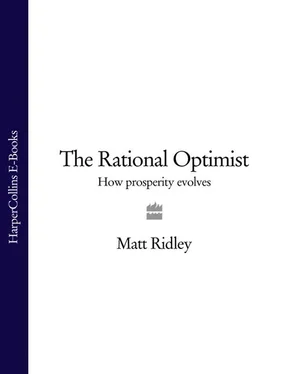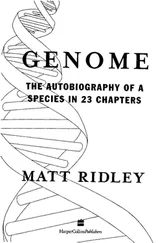1 ...7 8 9 11 12 13 ...26 In the year 2005, if you were the average consumer you would have spent your after-tax income in roughly the following way:
20 per cent on a roof over your head
18 per cent on cars, planes, fuel and all other forms of transport
16 per cent on household stuff: chairs, refrigerators, telephones, electricity, water
14 per cent on food, drink, restaurants etc
6 per cent on health care
5 per cent on movies, music and all entertainment
4 per cent on clothing of all kinds
2 per cent on education
1 per cent on soap, lipstick, haircuts, and such like
11 per cent on life insurance and pensions (i.e., saved to secure future spending)
and, alas from my point of view, only 0.3 per cent on reading
An English farm labourer in the 1790s spent his wages roughly as follows:
75 per cent on food
10 per cent on clothing and bedding
6 per cent on housing
5 per cent on heating
4 per cent on light and soap
A rural peasant woman in modern Malawi spends her time roughly as follows:
35 per cent farming food
33 per cent cooking, doing laundry and cleaning
17 per cent fetching water
5 per cent collecting firewood
9 per cent other kinds of work, including paid employment
Imagine next time you turn on the tap, what it must be like to walk a mile or more to the Shire River in Machinga province, hope you are not grabbed by a crocodile when filling your bucket (the UN estimates three crocodile deaths a month in the Machinga province, many of them of women fetching water), hope you have not picked up a cholera dose in your bucket, then walk back carrying the 20 litres that will have to last your family all day. I am not trying to make you feel guilty: I am trying to tease out what it is that makes you well off. It is having the hard work of living made easy by markets and machines and other people. There is probably nothing to stop you fetching free water from the nearest river in your home town, but you would rather pay something from your earnings to get it delivered clean and convenient from your tap.
So this is what poverty means. You are poor to the extent that you cannot afford to sell your time for sufficient price to buy the services you need, and rich to the extent that you can afford to buy not just the services you need but also those you crave.Prosperity, or growth, has been synonymous with moving from self-sufficiency to interdependence, transforming the family from a unit of laborious, slow and diverse production to a unit of easy, fast and diverse consumption paid for by a burst of specialised production.
Self-sufficiency is poverty
It is fashionable these days to decry ‘food miles’. The longer food has spent travelling to your plate, the more oil has been burnt and the more peace has been shattered along the way. But why single out food? Should we not protest against T-shirt miles, too, and laptop miles? After all, fruit and vegetables account for more than 20 per cent of all exports from poor countries, whereas most laptops come from rich countries, so singling out food imports for special discrimination means singling out poor countries for sanctions. Two economists recently concluded, after studying the issue, that the entire concept of food miles is ‘a profoundly flawed sustainability indicator’. Getting food from the farmer to the shop causes just 4 per cent of all its lifetime emissions. Ten times as much carbonis emitted in refrigerating British food as in air-freighting it from abroad, and fifty times as much is emitted by the customer travelling to the shops. A New Zealand lamb, shipped to England, requires one-quarter as much carbon to get on to a London plate as a Welsh lamb; a Dutch rose, grown in a heated greenhouse and sold in London, has six times the carbon footprint of a Kenyan rosegrown under the sun using water recycled through a fish farm, using geothermal electricity and providing employment to Kenyan women.
In truth, far from being unsustainable, the interdependence of the world through trade is the very thing that makes modern life as sustainable as it is. Suppose your local laptop manufacturer tells you that he already has three orders and then he is off on his holiday so he cannot make you one before the winter. You will have to wait. Or suppose your local wheat farmer tells you that last year’s rains means he will have to cut his flour delivery in half this year. You will have to go hungry. Instead, you benefit from a global laptop and wheat market in which somebody somewhere has something to sell you so there are rarely shortages, only modest price fluctuations.
For example, the price of wheat approximately trebled in 2006–8, just as it did in Europe in 1315–18. At the earlier date, Europe was less densely populated, farming was entirely organic and food miles were short. Yet in 2008, nobody ate a baby or pulled a corpse from a gibbet for food. Right up until the railways came, it was cheaper for people to turn into refugees than to pay the exorbitant costs of importing food into a hungry district. Interdependence spreads risk.
The decline in agricultural employment caused consternation among early economists. François Quesnay and his fellow ‘physiocrats’ argued in eighteenth-century France that manufacturing produced no gain in wealth and that switching from agriculture to industry would decrease a country’s wealth: only farming was true wealth creation. Two centuries later the decline in industrial employment in the late twentieth century caused a similar consternation among economists, who saw services as a frivolous distraction from the important business of manufacturing. They were just as wrong. There is no such thing as unproductive employment, so long as people are prepared to buy the service you are offering. Today, 1 per cent works in agriculture and 24 per cent in industry, leaving 75 per cent to offer movies, restaurant meals, insurance broking and aromatherapy.
Yet, surely, long ago, before trade, technology and farming, human beings lived simple, organic lives in harmony with nature. That was not poverty: that was ‘ the original affluent society’. Take a snapshot of the life of hunter-gathering human beings in their heyday, say at 15,000 years ago well after the taming of the dog and the extermination of the woolly rhinoceros but just before the colonisation of the Americas. People had spear throwers, bows and arrows, boats, needles, adzes, nets. They painted exquisite art on rocks, decorated their bodies, traded foods, shells, raw materials and ideas. They sang songs, danced rituals, told stories, prepared herbal remedies for illnesses. They lived into old age far more frequently than their ancestors had done.
They had a way of life that was sufficiently adaptable to work in almost any habitat or climate. Where every other species needed its niche, the hunter-gatherer could make a niche out of anything: seaside or desert, arctic or tropical, forest or steppe.
A Rousseauesque idyll? The hunter-gatherers certainly looked like noble savages: tall, fit, healthy, and (having replaced stabbing spears with thrown ones) with fewer broken bones than Neanderthals. They ate plenty of protein, not much fat and ample vitamins. In Europe, with the help of increasing cold, they had largely wiped out the lions and hyenasthat had both competed with and preyed upon their predecessors, so they had little to fear from wild animals. No wonder nostalgia for the Pleistocene runs through many of today’s polemics against consumerism. Geoffrey Miller, for example, in his excellent book Spent, asks his readers to imagine a Cro-Magnon mother of 30,000 years ago living ‘in a close-knit clan of family and friends…gathering organic fruits and vegetables…grooming, dancing, drumming and singing with people she knows, likes and trusts…the sun rising over the six thousand acres of verdant French Riviera coast that her clan holds.’
Читать дальше












